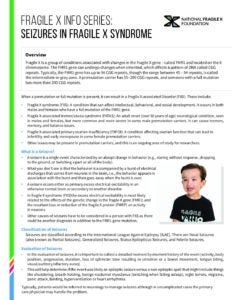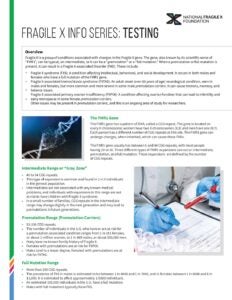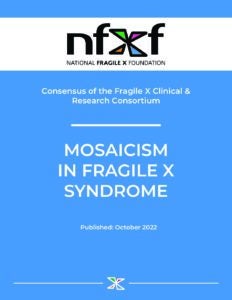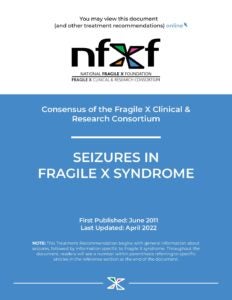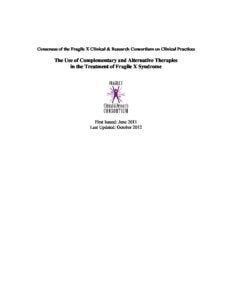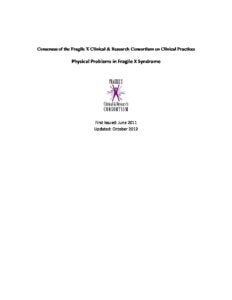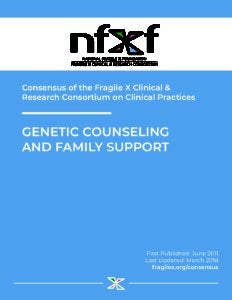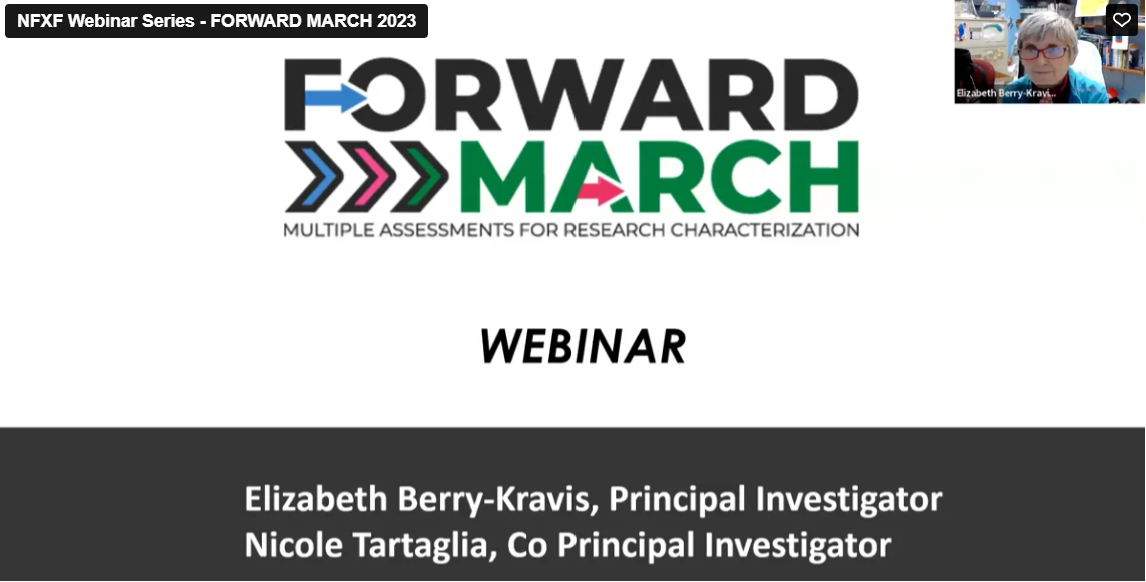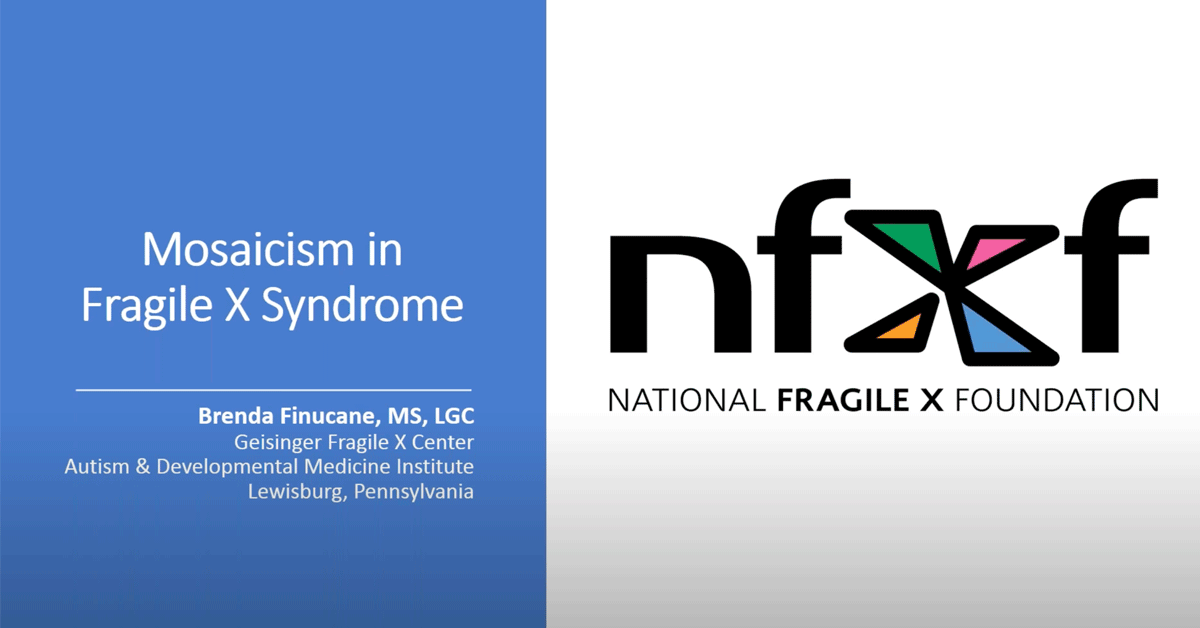Physical & Medical Concerns | NFXF (original) (raw)
-
- Fragile X 101
* Fragile X 101
* Prevalence
* Signs and Symptoms
* Genetics and Inheritance
* Testing and Diagnosis - Fragile X Syndrome
* Fragile X Syndrome
* Newly Diagnosed
* Fragile X & Autism - Associated Conditions
* Premutation
* FXPOI
* FXTAS
* New Developments - Xtraordinary Individuals
- 31 Shareable Fragile X Facts
- Fragile X Info SeriesFact sheets by topic
- Fragile X MasterClass™️
- Knowledge CenterFrequently asked questions.
- Fragile X 101
-
- Resources for Families
- FXS Strategies by Topic
* Adulthood
* Autism
* Behavior
* COVID-19
* Daily Living
* Females
* Medications
* Physical & Medical Concerns
* Puberty & Sexuality
* School & Education - FXS Resources by Age
- Premutation Topics
* The Fragile X Premutation
* FXTAS Resources
* FXPOI Resources
* Reproductive Resources - Newly Diagnosed
- ResearchLearn and participate
* Research 101What is research?
* STX209 Reconsent ProjectEnrollment is open
* International Fragile X Premutation Registry — For ParticipantsEnroll now
* Participate in ResearchMyFXResearch Portal
* Original Research Articles
* FORWARD-MARCHDatabase and registry
* Research ResultsNew and archives - Find a Fragile X Clinic
* U.S. Fragile X Syndrome Clinics
* FXTAS-Specific Clinics
* International Clinics & Organizations - Find a Contact Near You
- Knowledge CenterOur Fragile X library
- Webinars & Videos
- Printable Resources
- Treatment Recommendations
-
- Resources for Professionals
- NFXF MasterClass™️ for Professionals
- Research Readiness ProgramResearch facilitation for researchers
- NFXF Data Repository
- International Fragile X Premutation Registry — Research Requests
- FORWARD-MARCHRegistry & Database
- NFXF-Led PFDD Meeting for Fragile X SyndromePatient-focused drug development
- Marketing Your Research Opportunities
- Treatment Recommendations
- Fragile X Clinics
* U.S. FXS Clinics
* FXTAS-Specific Clinics
* International Clinics & Organizations - NFXF RESEARCH AWARDS
* Randi J. Hagerman Summer Scholar Research Awards
* Junior Investigator Awards
Get
Involved-
- Fragile X 101
* Fragile X 101
* Prevalence
* Signs & Symptoms
* Genetics and Inheritance
* Testing and Diagnosis - Fragile X Syndrome
* Fragile X Syndrome
* Fragile X & Autism - Associated Conditions
* Premutation
* FXPOI
* FXTAS
* New Developments - Xtraordinary Individuals
- 31 Shareable Fragile X Facts
- Fragile X Info Series
- FRAGILE X MASTERCLASS
- Knowledge Center
- Fragile X 101
-
- Resources for Families
- FXS Strategies by Topic
* Adulthood
* Autism
* Behavior
* Daily Living
* Females
* Medications
* Physical & Medical Concerns
* Fragile X and Puberty & Sexuality
* School & Education - FXS Resources by Age
- Premutation Topics
* The Fragile X Premutation
* FXTAS Resources
* FXPOI Resources
* Reproductive Resources - Newly Diagnosed
- Research
* Research 101: What is Research?
* STX209 Reconsent Project
* International Fragile X Premutation Registry — For Participants
* Participate in Research
* Original Research Articles
* FORWARD-MARCH
* Research Results Roundup - Find a Clinic Near You
- Find a Contact Near Your
- Knowledge Center
- Webinars & Videos
- Printable Resources
- Treatment Recommendations
-
- Resources for Professionals
- NFXF MasterClass™️ for Professionals
- Research Readiness Program
- NFXF Data Repository
- International Fragile X Premutation Registry — Research Requests
- FORWARD-MARCH Registry & Database
- NFXF-Led Patient-Focused Drug Development Meeting
- Marketing Your Research Opportunities
- Treatment Recommendations
- Find a Clinic Near You
- NFXF Research Awards
* Randi J. Hagerman Summer Scholars
* Junior Investigator Awards
Physical & Medical Concerns
Physical & Medical ConcernsDany Petraska2023-09-14T09:01:09-04:00
From Our Info Series
In Fragile X syndrome, the excess electrical excitability is most likely related to the effects of the genetic change in the Fragile X gene (FMR1) and the resultant loss or reduction of the Fragile X protein (FMRP) on activity in neurons.
Browse our other available Info Series flyers designed to be easily printable on your home or office printer.
The FMR1 gene can undergo changes when inherited, which can cause these Fragile X disorders.
Browse our other available Info Series flyers designed to be easily printable on your home or office printer.
Treatment Recommendations
This document addresses mosaicism in Fragile X syndrome, though it should be noted that mosaicism is observed in many genetic conditions. In Fragile X syndrome, both “size” and “methylation” mosaicism are seen.
Size mosaicism is defined as having both premutation and full mutation repeat expansions in the FMR1 gene. In methylation mosaicism, some cells are methylated, and some are not, resulting in the production of some (varying amounts of) FMRP.
In Fragile X syndrome the excess electrical excitability is most likely related to the effects of the genetic change in the Fragile X gene (FMR1) and the resultant loss or reduction of the Fragile X protein (FMRP) on activity in neurons.
Current treatment guidelines for Fragile X syndrome do not specifically advocate any form of complementary or alternative medicine therapy. However, if a family is considering one of these treatments, we strongly recommend that they review the treatment under consideration with the physician in charge of managing the child’s FXS symptoms. Points for discussion with the family include the evidence of efficacy vs. possible adverse effects, the financial burden of the therapy, and any emotional tolls of the treatment, including discomfort and time required.
An active approach to treatment can ensure that affected individuals will optimize their potential. In addition, affected individuals are often responsive to standard treatments, though as with all people, side effects may have an impact. Given the cognitive/behavioral aspects of the condition, side effects may present primarily as behavioral or atypical changes.
Genetic counseling sessions typically include obtaining and analyzing a detailed multigenerational family history, called a pedigree, in order to determine how a gene has been passed down in a family. The pedigree allows the counselor to assess the risk for FXD in individuals as well as extended family members.
Webinars
Hilary Rosselot2023-10-25T17:22:52-04:00
FORWARD-MARCH 2023 — Webinar
By Hilary Rosselot|2023-10-25T17:22:52-04:00Oct 3, 2023|
Drs. Elizabeth Berry-Kravis and Nicole Tartaglia presented updates about FORWARD-MARCH, followed by a Question and Answer session covering the specifics of the study.
Brenda Finucane2023-12-20T22:59:42-05:00
The Genetics of Fragile X Disorders
By Brenda Finucane|2023-12-20T22:59:42-05:00Apr 28, 2021|
Many thanks to Brenda Finucane for this webinar to help each of us understand the genetics of Fragile X. Brenda is a professor and licensed genetic counselor at Geisinger’s Autism and Developmental Medicine Institute in Lewisburg, PA.
Rebecca Shaffer2023-06-14T18:11:10-04:00
How to Prepare for a Telehealth Visit
By Rebecca Shaffer|2023-06-14T18:11:10-04:00Apr 24, 2020|
Drs Rebecca Shaffer and Ernie Pedapati tell you how to prepare for your telehealth visit, including behavioral checkups. They are with Fragile X Clinic at Cincinnati Children's Hospital. Their advice is applicable to all visits.
From Our Blog
More Resources
Making Sense of Multiple Diagnoses
When it comes to diagnosing Fragile X syndrome, there is good news and bad news. The good news is that more children than ever are being accurately diagnosed with Fragile X syndrome at an early age. The bad news is that there is a lot of confusion among parents, and even professionals, about the meaning of Fragile X in relation to other types of diagnoses that a child receives.
The Who, What & How of Genetic Counseling
Due to the complexity of Fragile X testing, the counselor is essential in the interpretation of results and for providing accurate information regarding Fragile X.
Fragile X Syndrome Medical Issues: Birth to Adolescence
Our own Jayne Dixon Weber hosts as Brenda Finucane, a licensed genetic counselor and professor at Geisinger’s Autism & Developmental Medicine Institute, answers your most frequently asked questions related to Fragile X and the complex inheritance pattern of the FMR1 gene.
Most infants with Fragile X syndrome (FXS) are healthy and don’t require extensive medical intervention. However, there are some common medical conditions that can occur more often in babies with Fragile X syndrome.
The Genetics of Fragile X Webinar
Jayne Dixon Weber hosts as Brenda Finucane, a licensed genetic counselor and professor at Geisinger’s Autism & Developmental Medicine Institute, answers your most frequently asked questions related to Fragile X and the complex inheritance pattern of the FMR1 gene.
Genetic Testing for Fragile X Syndrome and Associated Disorders
Fragile X testing, analysis, and diagnosis is a complicated subject. This page has extensive information for both parents and medical providers. If you are a parent who is researching this, we know it can be overwhelming, so continue to read the five things you need to know.
